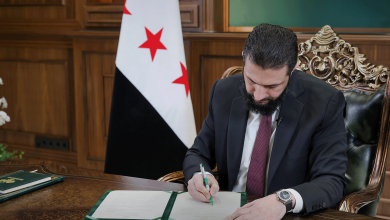A United States Navy warship, the USS Gravely, recently docked in Trinidad and Tobago, approximately 10 kilometers off the coast of Venezuela, escalating tensions in the Caribbean region. The deployment coincides with ongoing pressure from the United States, specifically actions initiated during the previous Trump administration, targeting the government of Venezuelan President Nicolás Maduro. The presence of the advanced naval vessel, equipped with sophisticated missile systems, has drawn sharp criticism from Caracas, which views it as a provocative act and a further demonstration of American interference in its internal affairs.
The USS Gravely is scheduled to participate in a five-day joint training exercise with the Trinidad and Tobago Defence Force. This exercise, announced last Thursday by authorities in the twin-island nation with a population of approximately 1.4 million, involves both the warship and a contingent of US Marines. The proximity of Trinidad and Tobago to Venezuela, with the closest point being only a few dozen kilometers from the Venezuelan coastline, amplifies the sensitivity surrounding the naval deployment.
This latest development occurs against the backdrop of a broader US military presence in the Caribbean Sea and the Gulf of Mexico. The United States has deployed a total of seven warships in the region, ostensibly as part of an intensified anti-drug trafficking operation. Washington maintains that its primary objective is to disrupt the flow of illicit narcotics, with a particular focus on Venezuela and its leadership, whom they accuse of complicity in drug trafficking activities. Over the past few weeks, the US military claims to have conducted numerous strikes against suspected drug smuggling vessels in the Pacific Ocean and the Caribbean Sea, resulting in significant casualties. According to figures compiled by Agence France-Presse based on US reports, at least 43 individuals have been killed in these operations.
However, the Venezuelan government vehemently rejects these claims, accusing Washington of using the anti-drug narrative as a pretext to pursue regime change and gain control over Venezuela’s vast oil reserves. Maduro has consistently denounced what he perceives as American imperialism and interference in his country’s sovereign affairs. The timing of the USS Gravely’s deployment and the ongoing US naval presence in the region further fuel these suspicions.
The political landscape in Trinidad and Tobago adds another layer of complexity to the situation. The current Prime Minister, Kamla Persad-Bissessar, is perceived to be a strong supporter of the previous US administration and has adopted a notably anti-immigrant stance towards Venezuelan migrants, often linking them to increased crime rates in the country. This stance has further strained relations between Trinidad and Tobago and Venezuela, exacerbating the already tense regional dynamics.
For more information about Culture, check our dedicated section.
Beyond Venezuela, tensions are also escalating between the United States and Colombia, particularly concerning issues related to immigration and drug trafficking. Recently, a Colombian paramilitary group, the Central General Staff, declared its intention to fight against the United States should it violate the country’s sovereignty. In a statement released yesterday, the group asserted, “We are accustomed to fighting those who must be fought, and we have always been fierce opponents of the American empire.” This declaration underscores the growing anti-American sentiment in certain parts of Latin America and the increasing willingness of non-state actors to challenge US hegemony.
The deployment of the USS Gravely raises several crucial questions about the future of US-Venezuelan relations and the overall stability of the Caribbean region. Is this a calculated move to exert further pressure on the Maduro government, or is it a genuine effort to combat drug trafficking? Will the joint training exercises with Trinidad and Tobago be interpreted as a sign of increased US involvement in the region, potentially leading to further escalation? And what impact will these developments have on the already fragile political and economic situation in Venezuela, which is grappling with hyperinflation, widespread poverty, and a severe humanitarian crisis?
For Algeria, a nation with a long history of non-alignment and support for national sovereignty, the situation in the Caribbean warrants careful observation. The potential for increased instability in the region could have far-reaching consequences, not only for the countries directly involved but also for the broader international community. Algeria’s diplomatic efforts, focused on promoting peaceful resolutions to conflicts and upholding the principles of international law, could play a crucial role in de-escalating tensions and fostering dialogue between the United States and Venezuela. The situation underscores the importance of multilateralism and the need for all nations to respect the sovereignty and territorial integrity of others. The deployment also highlights the continued relevance of the Non-Aligned Movement in advocating for a more just and equitable world order, free from foreign interference and domination. The coming weeks will be critical in determining whether the current tensions can be diffused or whether they will escalate into a more serious confrontation, with potentially devastating consequences for the region and beyond. The international community must act decisively to prevent further escalation and to promote a peaceful and sustainable solution to the complex challenges facing Venezuela and the wider Caribbean.



